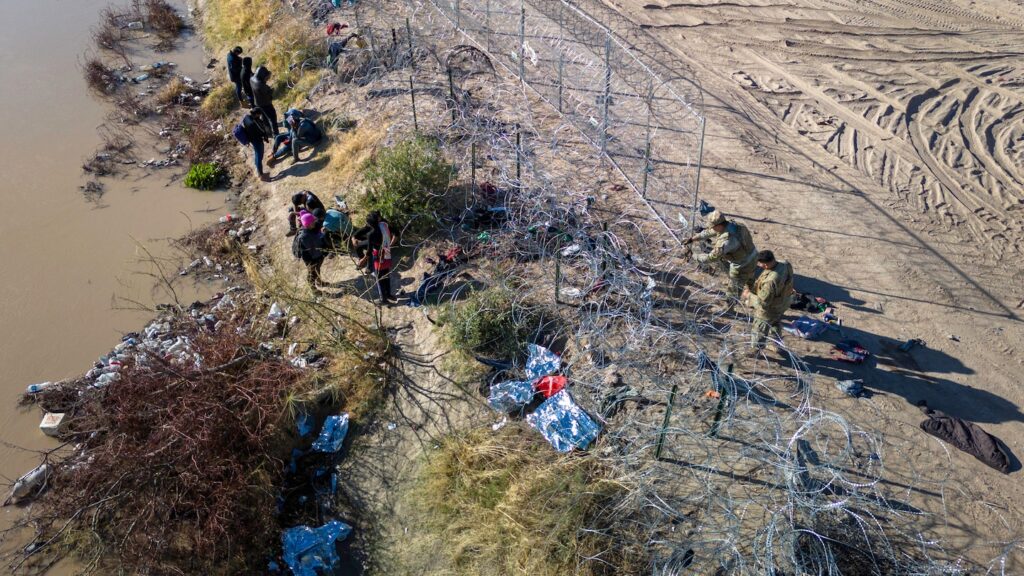A prolonged shutdown could have a knock-on effect on the government and economy. Two-thirds of IRS employees will face furloughs in the middle of tax filing season. Approximately 1.3 million active-duty U.S. military personnel will continue to serve without pay. So were many of the airport security workers who protested during the last airport closure, causing travel delays across the country.
As recently as Friday, Congressional negotiators were close to agreeing to finalize a spending bill for all of these government agencies, with the goal of voting on it as early as Thursday. (Congress has already passed another bill funding the remaining 30 percent of the government.) But disagreements over immigration at the U.S.-Mexico border have derailed the bill throughout this Congress. This issue emerged as a key sticking point between the two parties during the November session of Congress. The election hampered negotiations, according to people involved in the conversations. The person spoke on condition of anonymity to discuss private negotiations.
Amid rising tensions, negotiators for House Speaker Mike Johnson (R-Louisiana) over the weekend appealed to the White House, not Congressional Democrats, to engage in spending negotiations, underscoring the dangerous nature of the negotiations. . Both sides had expected to release the text of the bill Sunday afternoon, but that is highly unlikely given the continuing deep disagreements, people familiar with the talks said.
Republican negotiators have given the Department of Homeland Security about the same level of funding it received in fiscal year 2023, which ends Sept. 30, plus immigration enforcement funding, people said. The company says it is ready to provide additional funding for the project. Said. However, due to inflation, this would actually result in a significant reduction in funding.
The White House rejected the proposal because even that amount would leave the department dangerously short, the people said.
“Republicans have always said they will provide all the resources necessary for enforcement, not a blank check to simply ‘manage’ people domestically and bail out sanctuary cities,” a senior Republican said Sunday. “…House Republicans have repeatedly called on the White House for weeks to work with Congressional Democrats to address the severity of the situation, to little effect.”
Talks that continued Sunday afternoon focused on where the embezzlers wanted border security funds to go, according to three people familiar with the situation. The White House wants to preserve funding for detention facilities for illegal immigrants, while Republicans in Congress want to free up funding for border security. Sending more funds to Border Patrol agents to stop immigrants from entering the United States, perhaps by shifting funds from detention to border enforcement.
One administration official characterized Sunday afternoon's negotiations as an effort to prevent “chaos” at the border that could occur if Congress moves funds between different border security programs.
White House representatives did not respond to requests for comment.
U.S. Immigration and Customs Enforcement, part of the Department of Homeland Security, is already underfunded under the current budget. Last month, it laid out a plan to release thousands of migrants and reduce detainee capacity in the face of rapidly dwindling funding. Officials say better weather in the spring and summer could lead to more border crossings, further straining the agency's finances.
Border issues also complicate other funding options. President Biden, Mr. Johnson and Senate Minority Leader Charles E. Schumer of New York also remain at an impasse in talks over U.S. aid spending for Ukraine, with talks stalled over efforts to tie the money to border security. .
In February, a bipartisan group of senators led by Sen. James Lankford (R-Okla.), Sen. Chris Murphy (D-Conn.), and Sen. Kyrsten Sinema (Iri., Arizona) He announced a proposal to strengthen and comprehensively improve security. It is processing some asylum cases in exchange for tens of billions of dollars in emergency aid to Ukraine, Israel and other national security priorities. Mr. Biden has been vocal about his support for the policy. Republicans rejected it at the urging of former President Donald Trump.
But even after that, lawmakers said that the politics surrounding funding for the Department of Homeland Security are so difficult that those who embezzle the budget would likely be able to use it as a continuing resolution (CR) rather than the desired one-year funding bill. He said he would have to rely on known long-term stopgap spending measures.
This approach could anger Republican hardliners who want to use the spending process to extract immigration policy concessions from Democrats. But House Republican leaders have sought to quell concerns by insisting they may work on concrete changes to border policy in April. It was at this time that Prime Minister Johnson signaled that he planned to enact additional legislation for national security funding.
Nick Miroff and Marianna Sotomayor contributed to this report.


